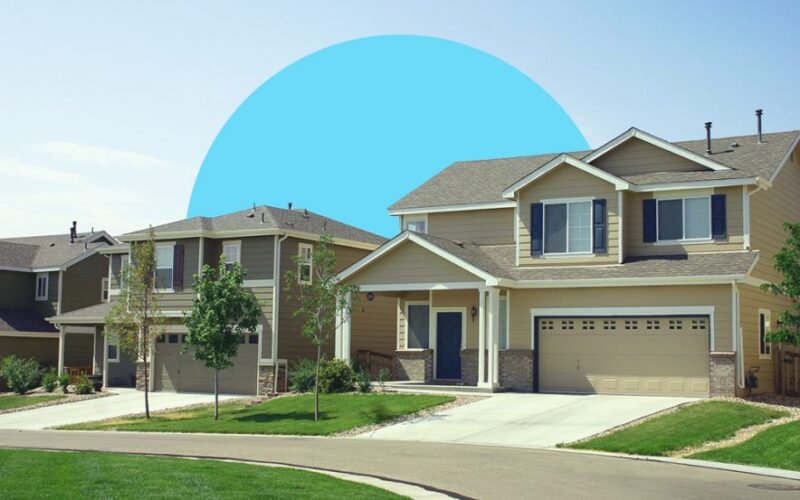Residing in a development planning community offers several advantages to a house owner. Not the least of which is the ease and conveniences it provides. Nevertheless, it doesn’t matter if you reside in a condo or single-family home. There are common features that enhance the ease and convenience of cohabitating. These, however, are managed by an HOA. Basically, a homeowners association ( HOA) is a community-based organization that sets and enforces the regulations for properties in its area. HOA is in charge of repairs, maintenance, security, and the community’s amenities like swimming pools, private clubs, salons, and fitness facilities which are open to everyone. However, all these aren’t free, which is where the HOA fees come in. Wondering what that means now? This article will give you more insight into how Hoa fees work, what they cover, and whether they are tax-deductible.
What are HOAs
In a neighborhood, a homeowners’ association, or HOA, is a group that sets and enforces the regulations for the homes within its authority.
Many residential communities include a homeowner’s association (HOA) structure to assist keep the area clean and harmonious. As a result, the HOA structure may also be present when you purchase a condominium, townhouse, or single-family home in a “planned development.”.
Despite the fact that the HOA might alleviate some of the homeowner’s tasks, it can also entail additional homeowner responsibilities. So you should consider this and ask both the association and yourself as well as your family questions about it. This, however, is before purchasing a house that is part of a homeowner’s association (HOA).
Following the resident’s purchase, you will need to join the HOA and pay HOA fees. This is to help maintain common areas, shared infrastructure, and the exteriors of their homes.
But, what are HOA fees?
What Are HOA Fees?
The homeowners’ association charges a regular fee known as HOA FEES (typically monthly or quarterly) to cover the costs of the services it offers.
Every month, a specified class of residential property owners must pay their homeowners association (HOA) an amount of money known as “HOA fees” (HOAs). However, the main objectives of collecting these fees are to help the organization maintain and improve the properties. On the other hand, many single-family home areas also charge HOA fees. However, this is not always the case.
When you purchase a house in an HOA community, you automatically become a part of common interest development (CID). As a result, you’ll also have to contribute to the upkeep of the common facilities and public amenities. One that the association maintains. These HOA fees also pay for the upkeep and repair of your community’s landscape as well as common areas.
Also important to know is that while the board sets your HOA costs, no one benefits financially from them. Your board comprises volunteers and residents who pay HOA fees just like everyone else in your neighborhood. As a rule, your HOA is a nonprofit entity, which means that any surplus funds are reinvested in the organization.
On the other hand, the HOA fees that condo owners pay typically cover building maintenance, such as lobbies, patios, landscaping, Aquatic centers as well as elevators.
The HOA fees might vary significantly between properties or communities. Regardless, the monthly rates range from $100 to $1,000. However, the average is between $200 and $300 every month. The more services and amenities, the greater the fees.
What You Should Know Before You Buy
Make sure you review financial disclosures and board meeting minutes after reaching a purchase agreement. However, you should do this before you finalize the deal. This will help you discover more about the HOA’s finances;
- You will be able to tell how much money the HOA has set aside in case of emergency repairs or large-scale or planned maintenance. without having to levy a special assessment or raise the monthly charge on everyone else.
- Also, this will reveal to you whether the HOA is an issue with the law.
- Likewise, you will be able to gather information on how frequently the HOA fees have increased in recent years.
- Does HOA has imposed additional costs on homeowners in addition to the HOA fees?
Do Your Research Before Making a Purchase
Make sure you’re familiar with all the CC&Rs before you buy the house, and double-check the HOA’s financial record; This should be able to address:
#1. Your home’s exterior
To keep the exterior similar to the neighborhood, the HOA may demand you to use the same roofing material, shingles, and paint colors as everyone else. And also to seek permission for a fence or pool. However, that is if you have permission to have one at all. If your homeowners’ association (HOA) fails to maintain your grass, you may be subject to limitations on trees and plants as well.
#2. Vehicles
Parking on the street and the quantity and type of cars parked around a home could be regulated by a homeowner.
#3. Pets
If fortunately, you’re allowed to have pets, their size and number may be limited.
#4. Rentals
Likewise, the HOA may set restrictions if you are authorized to rent out your property.
What is a CC&R?
Common restrictive covenants. You can think of CC&Rs as the regulations that you must obey if you live in that HOA community. Restrictive covenants, as opposed to zoning laws, are put in place by homeowners’ associations. However, this is to keep their properties looking their best and increase their value.
Nevertheless, there are a few types of restrictive covenants that you might expect to see in any given HOA community:
- Exterior home paint colors that are legal to use
- Property and landscaping criteria that must be met as a bare minimum
- Permitted types of fencing
- permitted window coverings
- You can only attach a select few security lights to your home.
- Installation of sports equipment, such as a basketball hoop, in the driveway, is subject to restrictions.
- Restriction of the use of recreational vehicles or the storage of vehicles
- Noise and odor control measures for property owners and tenants
- Dispositions governing the commercial or business use of privately owned land
What Do HOA Fees Cover?
The following explains what your HOA fees cover;
#1. Costs for Repairs and Maintenance
Your community’s common facilities must be maintained on a regular basis, which necessitates spending money. Lawn care, landscaping, snow removal, water pipes upkeep and maintenance, electricity and energy costs, repairs and swimming pool maintenance, air-con and heating bills, pest extermination, and general repairs are all examples of ongoing repair and maintenance spending.
#2. Insurance
Basically, a homeowners association will need to acquire insurance for any common buildings or structures. This is to safeguard against potentially expensive damage or other unforeseen mishaps in these public locations or in your community. In addition, your association may also require flood insurance. This however depends on your actual location and its aim is to safeguard itself against environmental threats.
When it comes to homeowner association dues, they only cover the cost of insuring the common areas. So, in order to safeguard yourself and your family, you may purchase a separate homeowner’s insurance policy. One that the HOA insurance does not cover.
#3. Funds for Contingencies
When it comes to emergency preparedness, where does your HOA stands, and how do fees help? Basically, some of the HOA fees should be set aside for unexpected events by a responsible HOA board of directors. In other words, in the event of an unforeseen expense, contingency funds contain any money that is set aside each month. However, spending for the community, emergency costs, or insurance costs following a large natural disaster are all examples of these costs.
#4. Utilities
In addition, any common facilities, such as swimming pools, health spas, meeting rooms, as well as clubhouses, will be subject to utility charges for homeowners associations. Likewise, if you live in an apartment complex, your electricity, cooling, and heating may be included in this as well. Occasionally, a full complex or development’s homeowners associations might negotiate a package discount on Internet and television services. Nevertheless, you’ll have to pay this as part of your association dues.
#5. Reserve money for emergencies.
In addition to establishing a budget and ensuring that your community’s expenses are at a bare minimum, your board also sets aside money for emergencies. However, the reserve funds should not be for everyday spending. Therefore your board should hire a reserve study firm. One that will help your organization evaluate the estimated life duration of pool pumps or boilers and the associated costs of replacing them.
In this case, a reserve research firm can assist your board in creating a budget. A budget that accounts for current spending as well as anticipated future ones. Reserving funds are invested so that they may create more money for the benefit of future expenditures. Nevertheless, the mainline, however, is that in order to avoid the dreaded special assessment, you must have considerable reserve cash.
#6. Staffing
What are the HOA fees utilized for in terms of maintaining and improving the quality of life in your neighborhood? If your homeowners’ association decides to employ maintenance and security workers, their wages will be part of your monthly fees.
#7. The management of a community association
Since board members are all voluntary members of the community. With so much to do, many homeowners and condominium associations enlist the help of a property management business. That service is also part of your HOA membership fees. A professional management firm can handle contractor agreements, upkeep, insurance, investments, as well as other organizational and financial responsibilities more efficiently. However, all of this is advantageous to your neighborhood. This is because it helps to keep it in good condition and raises the value of your home.
Are Hoa Fees Tax-Deductible?
Due to a lack of deductible expenses, homeowners’ association (HOA) fees are not tax-deductible.
In general, HOA fees are not tax-deductible if the property is your primary residence. There are, however, certain exceptions to this rule.
Some of the HOA fees associated with an office you keep in your house and use for commercial purposes may be tax-deductible, though. This, however, is if you are your boss and work primarily at home. Depending on the size of your home office, a deduction is taken from your paycheck in this case. You can deduct 25 percent of your HOA costs if you utilize 25 percent of your house as an office.
Likewise, if you own and rent out your own property, the second exception is applicable. All of your HOA dues can be deductible from your taxable income. HOA fees are tax-deductible from your rental property expenses according to IRS regulations in this kinda situation.
Part of your HOA fees can also be tax-deductible in the case of a secondary residence, such as a home you live in a part of the year but rent out the rest of the year, This is if you qualify though. By taking into account how much of the year you actually spend in the house, you can reduce your annual price. So, you may be able to deduct HOA dues from your taxable income if, for example, you rent out the property for six months of the year.
However, you will need Schedule E forms to record HOA fees if you are eligible for a tax deduction. For rental properties, you can deduct up to $25,000 in HOA fees each year from your taxable income.
Conclusion
Being part of a planned community and subject to the restrictions of an HOA can be both a blessing and a curse. It gives you the opportunity to give up part of the responsibility for maintaining your house in exchange for the shared facilities and security that come with living in a community. Trade the average neighborhood’s variety for one that’s more uniform, but one that has less likelihood of you being bothered by your neighbors’ taste in decor or poor home maintenance habits.
HOA FEES FAQs
What Is The Average Cost Of HOA Fees?
HOA rates vary widely depending on where you reside, the type of home you own, and the services provided by your HOA. A monthly HOA charge can be as low as $100 or as much as $1,000. They’ll usually cost between $200 and $300 each month
What are the things that your HOA fees don't cover?
Your HOA Fees will not cover your mortgage or your home; you will need to purchase your own insurance policy for these. Furthermore, the HOA fees will not cover the expenditures of maintaining or upgrading your own house.
What are the benefits of condo HOA fees?
Condo HOA fees cover the buildings that house condo units, as well as the common amenities that surround them, such as lobbies, patios, corridors, swimming pools, elevators, and recreational areas.
What Happens If I Don't Pay My Homeowners Association Fees?
There could be severe sanctions. You could land a fine or as well be taken to court by the HOA. A lien can even be placed on your home. In some situations, the HOA may even foreclose on your home if you don’t pay your dues.
Related Articles
- CONDO: Definition and Comparison of Condominium With Other Housing Types
- HOME INSURANCE: Best Insurance Companies and Policy
- TOWNHOUSE: Definition, Pros, Cons & All You Need (+ Free Tips)
- DEED RESTRICTIONS: Definition & How to Identify Deed Restrictions On A Property
- What Is a Lien on a House: Is it Bad to Have a Lien on Your House






